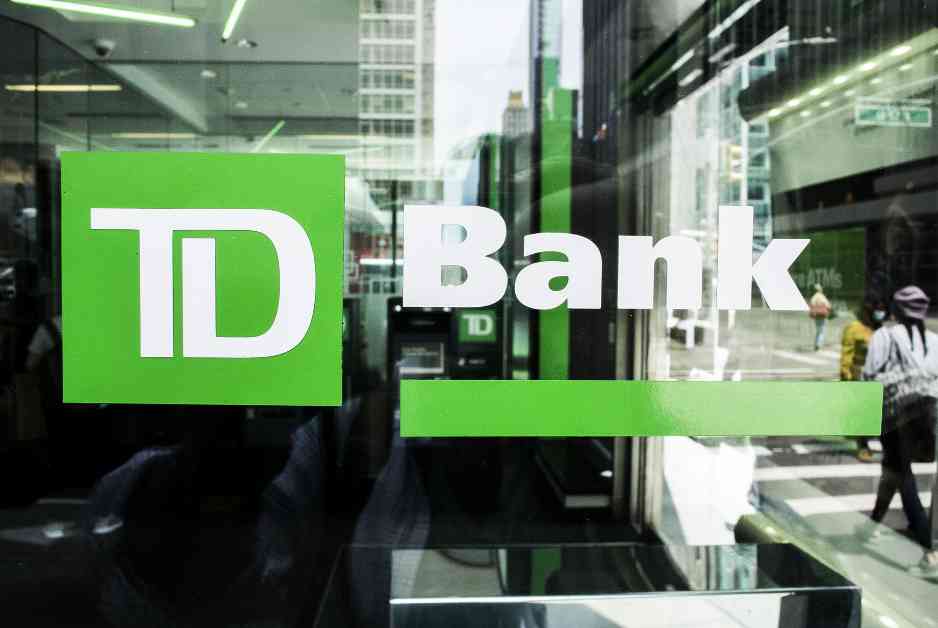TD Bank has agreed to pay a hefty fine of $3 billion to settle allegations of failing to properly monitor money laundering activities by drug cartels. This fine includes a record $1.3 billion penalty that will go to the US Treasury Department’s Financial Crimes Enforcement Network. Additionally, TD Bank will pay $1.8 billion to the US Justice Department and plead guilty to charges of violating the Bank Secrecy Act and allowing money laundering to take place.
According to the US Department of Justice, TD Bank had significant deficiencies in its transaction monitoring procedures, with more than 90% of transactions going unmonitored between January 2018 and April 2024. This allowed three money laundering networks to transfer over $670 million through TD Bank accounts. In one instance, bank employees collected gift cards worth $57,000 to process $470 million in cash deposits from a money laundering network, in an effort to avoid reporting these transactions as required.
The Office of the Comptroller of the Currency (OCC) also stated that TD Bank processed hundreds of millions of dollars in transactions that showed highly suspicious activity. As a result of these findings, TD Bank will be monitored by FinCEN for four years to ensure compliance with the settlement agreement.
The penalties imposed on TD Bank have surprised Wall Street, with the bank’s US-listed shares dropping by 6%. Analysts are concerned about the impact of these penalties on the bank’s growth and legal expenses, as well as the need for TD Bank to find new avenues for growth beyond its traditional US retail banking operations.
The US government’s concerns about money laundering by Mexican drug cartels through the US banking system have been growing, with officials working to address this issue. Treasury and IRS officials have been briefing banks and social media companies on how cartels exploit the financial system, with a focus on leveraging intelligence from smaller banks to identify money laundering activities.
This is not the first time TD Bank has faced legal troubles, as it previously paid $1.2 billion to settle allegations related to a Ponzi scheme. Despite these challenges, TD Bank has denied any wrongdoing in both cases.
Overall, the settlement with TD Bank highlights the importance of robust monitoring procedures to prevent money laundering and illicit financial activities. The repercussions of failing to do so can be severe, with significant financial penalties and restrictions on growth imposed by regulators. TD Bank’s experience serves as a cautionary tale for financial institutions to prioritize compliance and vigilance in detecting and preventing illegal activities within their banking operations.
